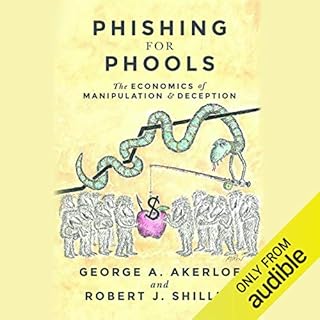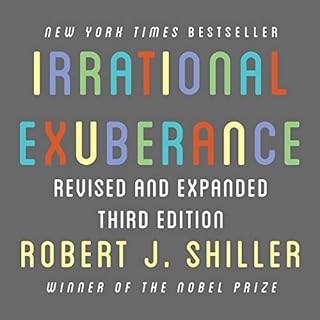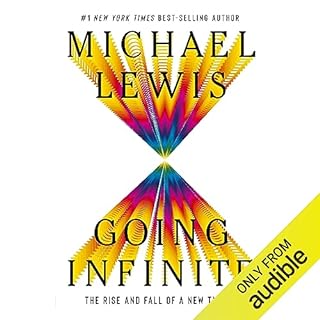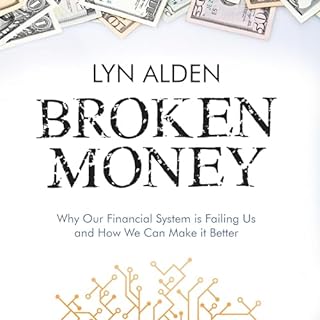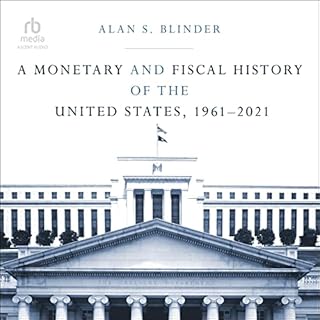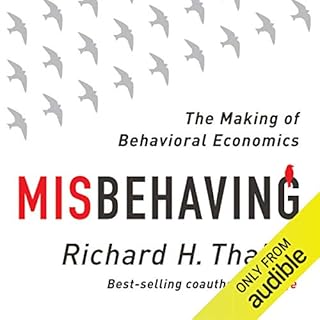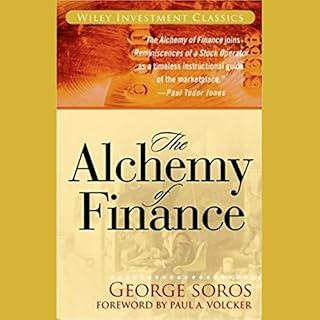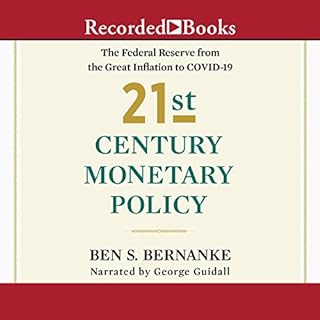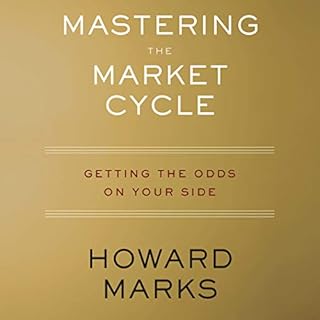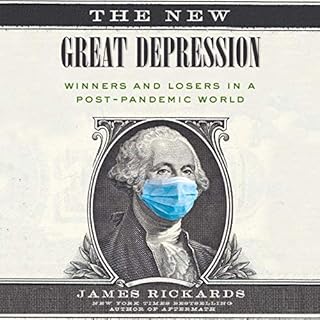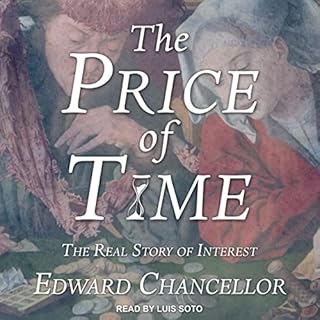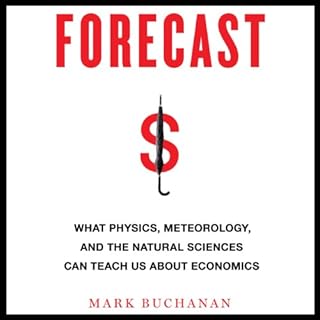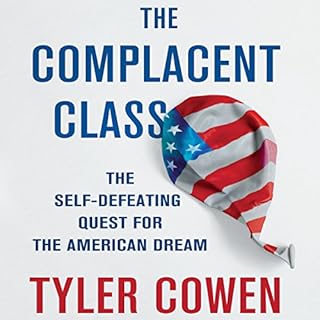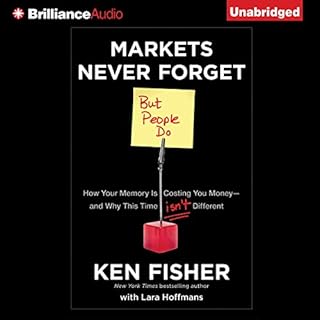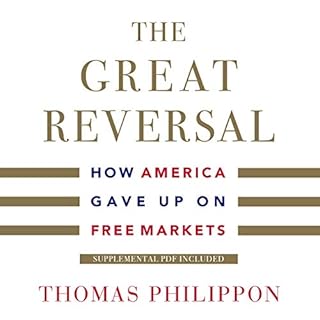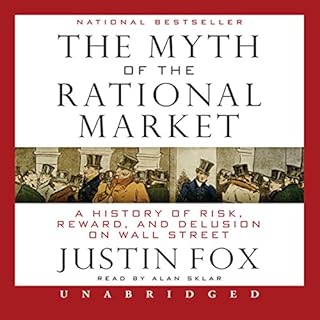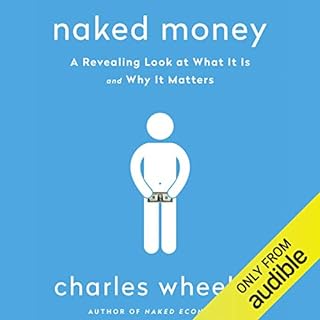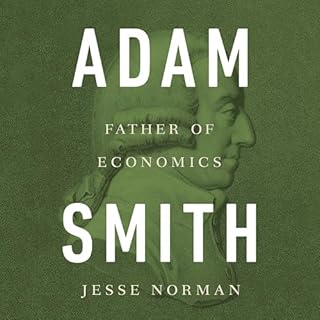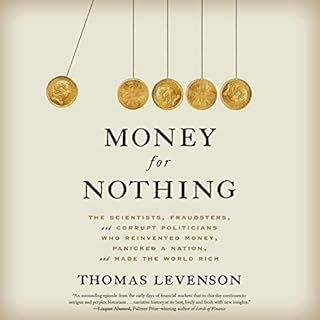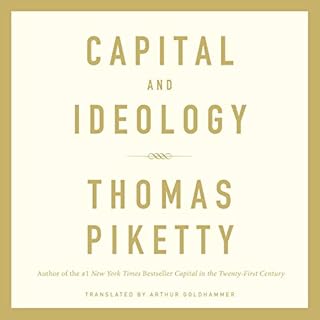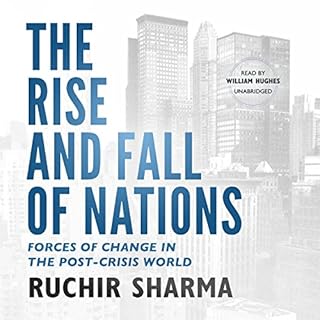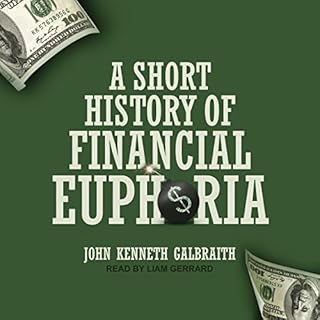
Narrative Economics
How Stories Go Viral and Drive Major Economic Events
Failed to add items
Add to Cart failed.
Add to Wish List failed.
Remove from wishlist failed.
Adding to library failed
Follow podcast failed
Unfollow podcast failed
 Prime members: New to Audible?
Prime members: New to Audible?Get 2 free audiobooks during trial.
Buy for $19.46
No default payment method selected.
We are sorry. We are not allowed to sell this product with the selected payment method
-
Narrated by:
-
Susan Osman
-
Robert J. Shiller - introduction
About this listen
From Nobel Prize-winning economist and New York Times best-selling author Robert Shiller, a new way to think about how popular stories help drive economic events
In a world in which internet troll farms attempt to influence foreign elections, can we afford to ignore the power of viral stories to affect economies? In this groundbreaking book, Nobel Prize-winning economist and New York Times best-selling author Robert Shiller offers a new way to think about the economy and economic change. Using a rich array of historical examples and data, Shiller argues that studying popular stories that affect individual and collective economic behavior - what he calls "narrative economics" - has the potential to vastly improve our ability to predict, prepare for, and lessen the damage of financial crises, recessions, depressions, and other major economic events.
Spread through the public in the form of popular stories, ideas can go viral and move markets - whether it's the belief that tech stocks can only go up, that housing prices never fall, or that some firms are too big to fail. Whether true or false, stories like these - transmitted by word of mouth, by the news media, and increasingly by social media - drive the economy by driving our decisions about how and where to invest, how much to spend and save, and more. But despite the obvious importance of such stories, most economists have paid little attention to them. Narrative Economics sets out to change that by laying the foundation for a way of understanding how stories help propel economic events that have had led to war, mass unemployment, and increased inequality.
The stories people tell - about economic confidence or panic, housing booms, the American dream, or Bitcoin - affect economic outcomes. Narrative Economics explains how we can begin to take these stories seriously. It may be Robert Shiller's most important book to date.
©2019 Robert J. Shiller (P)2019 Princeton University PressListeners also enjoyed...
-
Phishing for Phools
- The Economics of Manipulation and Deception
- By: George A. Akerlof, Robert J. Shiller
- Narrated by: Bronson Pinchot
- Length: 7 hrs and 11 mins
- Unabridged
-
Overall4 out of 5 stars 349
-
Performance4 out of 5 stars 300
-
Story4 out of 5 stars 299
Ever since Adam Smith, the central teaching of economics has been that free markets provide us with material well-being, as if by an invisible hand. In Phishing for Phools, Nobel Prize-winning economists George Akerlof and Robert Shiller deliver a fundamental challenge to this insight, arguing that markets harm as well as help us. As long as there is profit to be made, sellers will systematically exploit our psychological weaknesses and our ignorance through manipulation and deception.
-
4 out of 5 stars
-
Useful for a certain audience, but ...
- By Philo on 02-29-16
By: George A. Akerlof, and others
-
Irrational Exuberance
- Revised and Expanded Third Edition
- By: Robert J. Shiller
- Narrated by: Mike Chamberlain
- Length: 13 hrs and 47 mins
- Unabridged
-
Overall4.5 out of 5 stars 135
-
Performance4.5 out of 5 stars 109
-
Story4.5 out of 5 stars 108
With high stock and bond prices and the rising cost of housing, the post-subprime boom may well turn out to be another illustration of Shiller's influential argument that psychologically driven volatility is an inherent characteristic of all asset markets. In other words, Irrational Exuberance is as relevant as ever. Previous editions covered the stock and housing markets - and famously predicted their crashes. This edition expands its coverage to include the bond market, so that the book now addresses all of the major investment markets.
-
3 out of 5 stars
-
Still Relevant After 21 Years
- By Tom on 06-08-21
-
Going Infinite
- The Rise and Fall of a New Tycoon
- By: Michael Lewis
- Narrated by: Michael Lewis
- Length: 9 hrs and 35 mins
- Unabridged
-
Overall4.5 out of 5 stars 2,126
-
Performance4.5 out of 5 stars 1,908
-
Story4.5 out of 5 stars 1,906
When Michael Lewis first met him, Sam Bankman-Fried was the world’s youngest billionaire and crypto’s Gatsby. CEOs, celebrities, and leaders of small countries all vied for his time and cash after he catapulted, practically overnight, onto the Forbes billionaire list. Who was this rumpled guy in cargo shorts and limp white socks, whose eyes twitched across Zoom meetings as he played video games on the side?
-
1 out of 5 stars
-
really expected more rigor from Michael Lewis
- By Wowhello on 10-04-23
By: Michael Lewis
-
Finance and the Good Society
- By: Robert J Shiller
- Narrated by: Walter Dixon
- Length: 10 hrs and 43 mins
- Unabridged
-
Overall4 out of 5 stars 80
-
Performance4 out of 5 stars 64
-
Story4 out of 5 stars 66
The reputation of the financial industry could hardly be worse than it is today in the painful aftermath of the 2008 financial crisis. New York Times best-selling economist Robert Shiller is no apologist for the sins of finance - he is probably the only person to have predicted both the stock market bubble of 2000 and the real estate bubble that led up to the subprime mortgage meltdown. But in this important and timely book, Shiller argues that, rather than condemning finance, we need to reclaim it for the common good.
-
5 out of 5 stars
-
A good intro to finance
- By Philo on 05-16-12
By: Robert J Shiller
-
Broken Money
- Why Our Financial System Is Failing Us and How We Can Make It Better
- By: Lyn Alden
- Narrated by: Guy Swann
- Length: 17 hrs and 31 mins
- Unabridged
-
Overall5 out of 5 stars 450
-
Performance4.5 out of 5 stars 400
-
Story5 out of 5 stars 400
Broken Money explores the history of money through the lens of technology. Politics can affect things temporarily and locally, but technology is what drives things forward globally and permanently. The book's goal is for the listener to walk away with a deep understanding of money and monetary history, both in terms of theoretical foundations and in terms of practical implications.
-
4 out of 5 stars
-
It’s the ledger stupid
- By Jessica Hopman on 03-14-24
By: Lyn Alden
-
Easy Money
- Cryptocurrency, Casino Capitalism, and the Golden Age of Fraud
- By: Ben McKenzie, Jacob Silverman - contributor
- Narrated by: Ben McKenzie
- Length: 10 hrs and 33 mins
- Unabridged
-
Overall4.5 out of 5 stars 219
-
Performance4.5 out of 5 stars 194
-
Story4.5 out of 5 stars 194
From a famous actor and an experienced journalist, a wildly entertaining debunking of cryptocurrency, one of the greatest frauds in history and on course for a spectacular crash.
-
5 out of 5 stars
-
Informative and entertaining dive into crypto land
- By Uncle Fester on 07-21-23
By: Ben McKenzie, and others
-
Phishing for Phools
- The Economics of Manipulation and Deception
- By: George A. Akerlof, Robert J. Shiller
- Narrated by: Bronson Pinchot
- Length: 7 hrs and 11 mins
- Unabridged
-
Overall4 out of 5 stars 349
-
Performance4 out of 5 stars 300
-
Story4 out of 5 stars 299
Ever since Adam Smith, the central teaching of economics has been that free markets provide us with material well-being, as if by an invisible hand. In Phishing for Phools, Nobel Prize-winning economists George Akerlof and Robert Shiller deliver a fundamental challenge to this insight, arguing that markets harm as well as help us. As long as there is profit to be made, sellers will systematically exploit our psychological weaknesses and our ignorance through manipulation and deception.
-
4 out of 5 stars
-
Useful for a certain audience, but ...
- By Philo on 02-29-16
By: George A. Akerlof, and others
-
Irrational Exuberance
- Revised and Expanded Third Edition
- By: Robert J. Shiller
- Narrated by: Mike Chamberlain
- Length: 13 hrs and 47 mins
- Unabridged
-
Overall4.5 out of 5 stars 135
-
Performance4.5 out of 5 stars 109
-
Story4.5 out of 5 stars 108
With high stock and bond prices and the rising cost of housing, the post-subprime boom may well turn out to be another illustration of Shiller's influential argument that psychologically driven volatility is an inherent characteristic of all asset markets. In other words, Irrational Exuberance is as relevant as ever. Previous editions covered the stock and housing markets - and famously predicted their crashes. This edition expands its coverage to include the bond market, so that the book now addresses all of the major investment markets.
-
3 out of 5 stars
-
Still Relevant After 21 Years
- By Tom on 06-08-21
-
Going Infinite
- The Rise and Fall of a New Tycoon
- By: Michael Lewis
- Narrated by: Michael Lewis
- Length: 9 hrs and 35 mins
- Unabridged
-
Overall4.5 out of 5 stars 2,126
-
Performance4.5 out of 5 stars 1,908
-
Story4.5 out of 5 stars 1,906
When Michael Lewis first met him, Sam Bankman-Fried was the world’s youngest billionaire and crypto’s Gatsby. CEOs, celebrities, and leaders of small countries all vied for his time and cash after he catapulted, practically overnight, onto the Forbes billionaire list. Who was this rumpled guy in cargo shorts and limp white socks, whose eyes twitched across Zoom meetings as he played video games on the side?
-
1 out of 5 stars
-
really expected more rigor from Michael Lewis
- By Wowhello on 10-04-23
By: Michael Lewis
-
Finance and the Good Society
- By: Robert J Shiller
- Narrated by: Walter Dixon
- Length: 10 hrs and 43 mins
- Unabridged
-
Overall4 out of 5 stars 80
-
Performance4 out of 5 stars 64
-
Story4 out of 5 stars 66
The reputation of the financial industry could hardly be worse than it is today in the painful aftermath of the 2008 financial crisis. New York Times best-selling economist Robert Shiller is no apologist for the sins of finance - he is probably the only person to have predicted both the stock market bubble of 2000 and the real estate bubble that led up to the subprime mortgage meltdown. But in this important and timely book, Shiller argues that, rather than condemning finance, we need to reclaim it for the common good.
-
5 out of 5 stars
-
A good intro to finance
- By Philo on 05-16-12
By: Robert J Shiller
-
Broken Money
- Why Our Financial System Is Failing Us and How We Can Make It Better
- By: Lyn Alden
- Narrated by: Guy Swann
- Length: 17 hrs and 31 mins
- Unabridged
-
Overall5 out of 5 stars 450
-
Performance4.5 out of 5 stars 400
-
Story5 out of 5 stars 400
Broken Money explores the history of money through the lens of technology. Politics can affect things temporarily and locally, but technology is what drives things forward globally and permanently. The book's goal is for the listener to walk away with a deep understanding of money and monetary history, both in terms of theoretical foundations and in terms of practical implications.
-
4 out of 5 stars
-
It’s the ledger stupid
- By Jessica Hopman on 03-14-24
By: Lyn Alden
-
Easy Money
- Cryptocurrency, Casino Capitalism, and the Golden Age of Fraud
- By: Ben McKenzie, Jacob Silverman - contributor
- Narrated by: Ben McKenzie
- Length: 10 hrs and 33 mins
- Unabridged
-
Overall4.5 out of 5 stars 219
-
Performance4.5 out of 5 stars 194
-
Story4.5 out of 5 stars 194
From a famous actor and an experienced journalist, a wildly entertaining debunking of cryptocurrency, one of the greatest frauds in history and on course for a spectacular crash.
-
5 out of 5 stars
-
Informative and entertaining dive into crypto land
- By Uncle Fester on 07-21-23
By: Ben McKenzie, and others
-
A Monetary and Fiscal History of the United States, 1961-2021
- By: Alan S. Blinder
- Narrated by: Todd McLaren
- Length: 15 hrs and 12 mins
- Unabridged
-
Overall4.5 out of 5 stars 71
-
Performance4.5 out of 5 stars 59
-
Story4.5 out of 5 stars 59
Alan Blinder, one of the world's most influential economists and one of the field's best writers, draws on his deep firsthand experience to provide an authoritative account of sixty years of monetary and fiscal policy in the United States. Spanning twelve presidents, from John F. Kennedy to Joe Biden, and eight Federal Reserve chairs, from William McChesney Martin to Jerome Powell, this is an insider's story of macroeconomic policy that hasn't been told before—one that is a pleasure to listen to, and as interesting as it is important.
-
3 out of 5 stars
-
Listen for Nixon's Sake
- By Tricia on 10-26-22
By: Alan S. Blinder
-
Misbehaving
- The Making of Behavioral Economics
- By: Richard H. Thaler
- Narrated by: L. J. Ganser
- Length: 13 hrs and 35 mins
- Unabridged
-
Overall4.5 out of 5 stars 6,453
-
Performance4.5 out of 5 stars 5,540
-
Story4.5 out of 5 stars 5,497
Richard H. Thaler has spent his career studying the radical notion that the central agents in the economy are humans - predictable, error-prone individuals. Misbehaving is his arresting, frequently hilarious account of the struggle to bring an academic discipline back down to earth - and change the way we think about economics, ourselves, and our world.
-
3 out of 5 stars
-
Great book if it's your first about Behav. Econ
- By Jay Friedman on 09-30-15
-
The Alchemy of Finance
- By: George Soros
- Narrated by: Grover Gardner
- Length: 2 hrs and 49 mins
- Abridged
-
Overall4 out of 5 stars 886
-
Performance4 out of 5 stars 633
-
Story4 out of 5 stars 641
George Soros, called "a superstar among money managers" by The New York Times, shares the investment strategies he uses to read the mind of the market.
-
3 out of 5 stars
-
Audible doesn't have full version
- By Steve on 06-17-15
By: George Soros
-
Chip War
- The Quest to Dominate the World's Most Critical Technology
- By: Chris Miller
- Narrated by: Stephen Graybill
- Length: 12 hrs and 38 mins
- Unabridged
-
Overall5 out of 5 stars 2,319
-
Performance4.5 out of 5 stars 1,968
-
Story5 out of 5 stars 1,966
You may be surprised to learn that microchips are the new oil—the scarce resource on which the modern world depends. Today, military, economic, and geopolitical power are built on a foundation of computer chips. Virtually everything—from missiles to microwaves—runs on chips, including cars, smartphones, the stock market, even the electric grid. Until recently, America designed and built the fastest chips and maintained its lead as the #1 superpower, but America’s edge is in danger of slipping, undermined by players in Taiwan, Korea, and Europe taking over manufacturing.
-
5 out of 5 stars
-
Great history, but could poor narration
- By Lily Wong on 10-26-22
By: Chris Miller
-
21st Century Monetary Policy
- The Federal Reserve from the Great Inflation to COVID-19
- By: Ben S. Bernanke
- Narrated by: George Guidall
- Length: 16 hrs and 4 mins
- Unabridged
-
Overall4 out of 5 stars 108
-
Performance3.5 out of 5 stars 88
-
Story4.5 out of 5 stars 89
A former chair of the Federal Reserve explains the transformation of one our most powerful and consequential institutions.
-
1 out of 5 stars
-
don't buy, horrible narration
- By Mr. Incognito on 05-18-22
By: Ben S. Bernanke
-
Mastering the Market Cycle
- Getting the Odds on Your Side
- By: Howard Marks
- Narrated by: LJ Ganser, Howard Marks
- Length: 9 hrs and 39 mins
- Unabridged
-
Overall4.5 out of 5 stars 1,270
-
Performance4.5 out of 5 stars 1,038
-
Story4.5 out of 5 stars 1,031
The legendary investor shows how to identify and master the cycles that govern the markets. We all know markets rise and fall, but when should you pull out, and when should you stay in? The answer is never black or white, but is best reached through a keen understanding of the reasons behind the rhythm of cycles. Confidence about where we are in a cycle comes when you learn the patterns of ups and downs that influence not just economics, markets and companies, but also human psychology and the investing behaviors that result.
-
1 out of 5 stars
-
Cycles : nothing new!
- By Amazon Customer on 11-01-18
By: Howard Marks
-
The New Great Depression
- Winners and Losers in a Post-Pandemic World
- By: James Rickards
- Narrated by: James Rickards
- Length: 5 hrs and 27 mins
- Unabridged
-
Overall4.5 out of 5 stars 1,235
-
Performance4.5 out of 5 stars 1,069
-
Story4.5 out of 5 stars 1,060
The current crisis is not like 2008 or even 1929. The New Depression that has emerged from the COVID pandemic is the worst economic crisis in US history. Most fired employees will remain redundant. Bankruptcies will be common, and banks will buckle under the weight of bad debts. Deflation, debt, and demography will wreck any chance of recovery, and social disorder will follow closely on the heels of market chaos. The happy talk from Wall Street and the White House is an illusion. The worst is yet to come.
-
4 out of 5 stars
-
In short
- By Michael Solano on 01-13-21
By: James Rickards
-
The Delusions of Crowds
- Why People Go Mad in Groups
- By: William J. Bernstein
- Narrated by: Tom Parks
- Length: 17 hrs and 19 mins
- Unabridged
-
Overall4 out of 5 stars 185
-
Performance4.5 out of 5 stars 151
-
Story4 out of 5 stars 151
Inspired by Charles Mackay's 19th-century classic Memoirs of Extraordinary Popular Delusions and the Madness of Crowds, Bernstein engages with mass delusion with the same curiosity and passion, but armed with the latest scientific research that explains the biological, evolutionary, and psychosocial roots of human irrationality.
-
2 out of 5 stars
-
The Illusion of Delusions
- By Bill on 02-12-22
-
The Price of Time
- The Real Story of Interest
- By: Edward Chancellor
- Narrated by: Luis Soto
- Length: 15 hrs and 7 mins
- Unabridged
-
Overall4.5 out of 5 stars 281
-
Performance4.5 out of 5 stars 235
-
Story4.5 out of 5 stars 235
In the beginning was the loan, and the loan carried interest. For at least five millennia people have been borrowing and lending at interest. Yet as capitalism became established from the late Middle Ages onwards, denunciations of interest were tempered because interest was a necessary reward for lenders to part with their capital. And interest performs many other vital functions: it encourages people to save; enables them to place a value on precious assets, such as houses and all manner of financial securities; and allows us to price risk.
-
5 out of 5 stars
-
Big landscape in time and subjects; Austrian view
- By Philo on 08-29-22
-
1177 B.C. (Revised and Updated)
- The Year Civilization Collapsed
- By: Eric H. Cline
- Narrated by: Eric H. Cline
- Length: 10 hrs and 47 mins
- Unabridged
-
Overall4.5 out of 5 stars 635
-
Performance4 out of 5 stars 552
-
Story4.5 out of 5 stars 551
This audiobook narrated by acclaimed archaeologist and best-selling author Eric Cline offers a breathtaking account of how the collapse of an ancient civilized world ushered in the first Dark Ages.
-
5 out of 5 stars
-
Look past the one-star reviews: this is an enlightening and engaging read.
- By Alonzo Nightjar on 03-07-22
By: Eric H. Cline
-
Principles for Navigating Big Debt Crises
- By: Ray Dalio
- Narrated by: Stephen Graybill
- Length: 16 hrs and 52 mins
- Unabridged
-
Overall4.5 out of 5 stars 131
-
Performance4.5 out of 5 stars 105
-
Story4.5 out of 5 stars 105
As he explained in his #1 New York Times bestseller Principles, Ray Dalio believes that most everything happens over and over again through time so that by studying patterns one can understand the cause-effect relationships behind events and develop principles for dealing with them well. In this three-part research series, he does just that for big debt crises and shares his template in the hopes of reducing the chances of big debt crises happening and helping them be better managed in the future.
-
3 out of 5 stars
-
Interesting book
- By Mark on 02-06-23
By: Ray Dalio
-
Guns, Germs and Steel
- The Fate of Human Societies
- By: Jared Diamond
- Narrated by: Doug Ordunio
- Length: 16 hrs and 20 mins
- Unabridged
-
Overall4.5 out of 5 stars 12,367
-
Performance4.5 out of 5 stars 10,390
-
Story4.5 out of 5 stars 10,346
Having done field work in New Guinea for more than 30 years, Jared Diamond presents the geographical and ecological factors that have shaped the modern world. From the viewpoint of an evolutionary biologist, he highlights the broadest movements both literal and conceptual on every continent since the Ice Age, and examines societal advances such as writing, religion, government, and technology.
-
5 out of 5 stars
-
Compelling pre-history and emergent history
- By Doug on 08-25-11
By: Jared Diamond
Related to this topic
-
Forecast
- What Physics, Meteorology, and the Natural Sciences Can Teach Us About Economics
- By: Mark Buchanan
- Narrated by: Fleet Cooper
- Length: 10 hrs
- Unabridged
-
Overall4.5 out of 5 stars 33
-
Performance4.5 out of 5 stars 30
-
Story4.5 out of 5 stars 30
Picture an early scene from The Wizard of Oz: Dorothy hurries home as a tornado gathers in what was once a clear Kansas sky. Hurriedly, she seeks shelter in the storm cellar under the house, but, finding it locked, takes cover in her bedroom. We all know how that works out for her.Many investors these days are a bit like Dorothy, putting their faith in something as solid and trustworthy as a house (or, say, real estate). But market disruptions - storms - seem to arrive without warning, leaving us little time to react.
-
4 out of 5 stars
-
Good Contrarian Book
- By J. Sterz on 04-18-17
By: Mark Buchanan
-
A Little History of the World
- By: E. H. Gombrich
- Narrated by: Ralph Cosham
- Length: 9 hrs and 11 mins
- Unabridged
-
Overall4.5 out of 5 stars 4,081
-
Performance4.5 out of 5 stars 3,428
-
Story4.5 out of 5 stars 3,414
E. H. Gombrich's world history, an international best seller now available in English for the first time, is a text dominated not by dates and facts but by the sweep of experience across the centuries, a guide to humanity's achievements, and an acute witness to its frailties.
-
5 out of 5 stars
-
an enlightening book; very well read
- By A.B.Oxford on 06-03-06
By: E. H. Gombrich
-
The Complacent Class
- The Self-Defeating Quest for the American Dream
- By: Tyler Cowen
- Narrated by: Walter Dixon
- Length: 7 hrs and 39 mins
- Unabridged
-
Overall4 out of 5 stars 299
-
Performance4.5 out of 5 stars 254
-
Story4 out of 5 stars 253
Since Alexis de Tocqueville, restlessness has been accepted as a signature American trait. Our willingness to move, take risks, and adapt to change have produced a dynamic economy and a tradition of innovation from Ben Franklin to Steve Jobs. The problem, according to legendary blogger, economist, and best-selling author Tyler Cowen, is that Americans today have broken from this tradition - we're working harder than ever to avoid change.
-
5 out of 5 stars
-
MUST READ
- By RJW on 05-06-17
By: Tyler Cowen
-
The Impulse Society
- America in the Age of Instant Gratification
- By: Paul Roberts
- Narrated by: Edoardo Ballerini
- Length: 9 hrs and 39 mins
- Unabridged
-
Overall4 out of 5 stars 65
-
Performance4.5 out of 5 stars 54
-
Story4 out of 5 stars 54
Paul Robert digs down to the economic roots of the problem, shows how it has metastisized to affect every facet of our lives and our ability to navigate the future. In clear, cogent prose that mixes illuminating analysis and vibrant reporting, Roberts not only tells the fascinating story of how the impulse society came to be, but shows how, perhaps, a healthier society may still be possible.
-
4 out of 5 stars
-
A Must-Listen for Millenials
- By Doug - Audible on 03-31-15
By: Paul Roberts
-
The Money Formula
- Dodgy Finance, Pseudo Science, and How Mathematicians Took Over the Markets
- By: Paul Wilmott, David Orrell
- Narrated by: Gavin Osborn
- Length: 8 hrs and 45 mins
- Unabridged
-
Overall4.5 out of 5 stars 32
-
Performance5 out of 5 stars 31
-
Story4.5 out of 5 stars 31
The Money Formula takes you inside the engine room of the global economy to explore the little-understood world of quantitative finance, and show how the future of our economy rests on the backs of this all-but-impenetrable industry. Written not from a post-crisis perspective - but from a preventative point of view - this book traces the development of financial derivatives from bonds to credit default swaps, and shows how mathematical formulas went beyond pricing to expand their use to the point where they dwarfed the real economy.
By: Paul Wilmott, and others
-
Phishing for Phools
- The Economics of Manipulation and Deception
- By: George A. Akerlof, Robert J. Shiller
- Narrated by: Bronson Pinchot
- Length: 7 hrs and 11 mins
- Unabridged
-
Overall4 out of 5 stars 349
-
Performance4 out of 5 stars 300
-
Story4 out of 5 stars 299
Ever since Adam Smith, the central teaching of economics has been that free markets provide us with material well-being, as if by an invisible hand. In Phishing for Phools, Nobel Prize-winning economists George Akerlof and Robert Shiller deliver a fundamental challenge to this insight, arguing that markets harm as well as help us. As long as there is profit to be made, sellers will systematically exploit our psychological weaknesses and our ignorance through manipulation and deception.
-
4 out of 5 stars
-
Useful for a certain audience, but ...
- By Philo on 02-29-16
By: George A. Akerlof, and others
-
Forecast
- What Physics, Meteorology, and the Natural Sciences Can Teach Us About Economics
- By: Mark Buchanan
- Narrated by: Fleet Cooper
- Length: 10 hrs
- Unabridged
-
Overall4.5 out of 5 stars 33
-
Performance4.5 out of 5 stars 30
-
Story4.5 out of 5 stars 30
Picture an early scene from The Wizard of Oz: Dorothy hurries home as a tornado gathers in what was once a clear Kansas sky. Hurriedly, she seeks shelter in the storm cellar under the house, but, finding it locked, takes cover in her bedroom. We all know how that works out for her.Many investors these days are a bit like Dorothy, putting their faith in something as solid and trustworthy as a house (or, say, real estate). But market disruptions - storms - seem to arrive without warning, leaving us little time to react.
-
4 out of 5 stars
-
Good Contrarian Book
- By J. Sterz on 04-18-17
By: Mark Buchanan
-
A Little History of the World
- By: E. H. Gombrich
- Narrated by: Ralph Cosham
- Length: 9 hrs and 11 mins
- Unabridged
-
Overall4.5 out of 5 stars 4,081
-
Performance4.5 out of 5 stars 3,428
-
Story4.5 out of 5 stars 3,414
E. H. Gombrich's world history, an international best seller now available in English for the first time, is a text dominated not by dates and facts but by the sweep of experience across the centuries, a guide to humanity's achievements, and an acute witness to its frailties.
-
5 out of 5 stars
-
an enlightening book; very well read
- By A.B.Oxford on 06-03-06
By: E. H. Gombrich
-
The Complacent Class
- The Self-Defeating Quest for the American Dream
- By: Tyler Cowen
- Narrated by: Walter Dixon
- Length: 7 hrs and 39 mins
- Unabridged
-
Overall4 out of 5 stars 299
-
Performance4.5 out of 5 stars 254
-
Story4 out of 5 stars 253
Since Alexis de Tocqueville, restlessness has been accepted as a signature American trait. Our willingness to move, take risks, and adapt to change have produced a dynamic economy and a tradition of innovation from Ben Franklin to Steve Jobs. The problem, according to legendary blogger, economist, and best-selling author Tyler Cowen, is that Americans today have broken from this tradition - we're working harder than ever to avoid change.
-
5 out of 5 stars
-
MUST READ
- By RJW on 05-06-17
By: Tyler Cowen
-
The Impulse Society
- America in the Age of Instant Gratification
- By: Paul Roberts
- Narrated by: Edoardo Ballerini
- Length: 9 hrs and 39 mins
- Unabridged
-
Overall4 out of 5 stars 65
-
Performance4.5 out of 5 stars 54
-
Story4 out of 5 stars 54
Paul Robert digs down to the economic roots of the problem, shows how it has metastisized to affect every facet of our lives and our ability to navigate the future. In clear, cogent prose that mixes illuminating analysis and vibrant reporting, Roberts not only tells the fascinating story of how the impulse society came to be, but shows how, perhaps, a healthier society may still be possible.
-
4 out of 5 stars
-
A Must-Listen for Millenials
- By Doug - Audible on 03-31-15
By: Paul Roberts
-
The Money Formula
- Dodgy Finance, Pseudo Science, and How Mathematicians Took Over the Markets
- By: Paul Wilmott, David Orrell
- Narrated by: Gavin Osborn
- Length: 8 hrs and 45 mins
- Unabridged
-
Overall4.5 out of 5 stars 32
-
Performance5 out of 5 stars 31
-
Story4.5 out of 5 stars 31
The Money Formula takes you inside the engine room of the global economy to explore the little-understood world of quantitative finance, and show how the future of our economy rests on the backs of this all-but-impenetrable industry. Written not from a post-crisis perspective - but from a preventative point of view - this book traces the development of financial derivatives from bonds to credit default swaps, and shows how mathematical formulas went beyond pricing to expand their use to the point where they dwarfed the real economy.
By: Paul Wilmott, and others
-
Phishing for Phools
- The Economics of Manipulation and Deception
- By: George A. Akerlof, Robert J. Shiller
- Narrated by: Bronson Pinchot
- Length: 7 hrs and 11 mins
- Unabridged
-
Overall4 out of 5 stars 349
-
Performance4 out of 5 stars 300
-
Story4 out of 5 stars 299
Ever since Adam Smith, the central teaching of economics has been that free markets provide us with material well-being, as if by an invisible hand. In Phishing for Phools, Nobel Prize-winning economists George Akerlof and Robert Shiller deliver a fundamental challenge to this insight, arguing that markets harm as well as help us. As long as there is profit to be made, sellers will systematically exploit our psychological weaknesses and our ignorance through manipulation and deception.
-
4 out of 5 stars
-
Useful for a certain audience, but ...
- By Philo on 02-29-16
By: George A. Akerlof, and others
-
The Great Degeneration
- How Institutions Decay and Economies Die
- By: Niall Ferguson
- Narrated by: Paul Slack
- Length: 4 hrs and 18 mins
- Unabridged
-
Overall4.5 out of 5 stars 308
-
Performance4.5 out of 5 stars 261
-
Story4.5 out of 5 stars 260
Best-selling author and world-renowned historian Niall Ferguson has won widespread acclaim for thought-provoking works such as Civilization and High Financier. The Great Degeneration tackles nothing less than the decline of Western civilization. Ferguson posits that slowing growth, outrageous debt, and antisocial behavior are contributing to the erosion of the West’s once rock-solid foundations. Ferguson excavates the causes and shows how heroic leadership and radical reform are needed to right the course.
-
5 out of 5 stars
-
Superb as always!
- By Ivanhoe on 08-28-17
By: Niall Ferguson
-
Rainbow's End: The Crash of 1929
- Oxford University Press: Pivotal Moments in US History
- By: Maury Klein
- Narrated by: Sean Crisden
- Length: 11 hrs and 45 mins
- Unabridged
-
Overall4.5 out of 5 stars 48
-
Performance4.5 out of 5 stars 34
-
Story4.5 out of 5 stars 35
The first major history of the Crash in over a decade, Rainbow's End tells the story of the stock market collapse in a colorful, swift-moving narrative that blends a vivid portrait of the 1920s with an intensely gripping account of Wall Street's greatest catastrophe. The book offers a vibrant picture of a world full of plungers, powerful bankers, corporate titans, millionaire brokers, and buoyantly optimistic stock market bulls.
-
4 out of 5 stars
-
Plenty of fine detail, especially of the 1920s
- By Philo on 04-18-13
By: Maury Klein
-
Upside
- Profiting from the Profound Demographic Shifts Ahead
- By: Kenneth W. Gronbach, M.J. Moye, John Zogby - foreword
- Narrated by: Tom Parks
- Length: 7 hrs and 43 mins
- Unabridged
-
Overall4.5 out of 5 stars 133
-
Performance4.5 out of 5 stars 112
-
Story4.5 out of 5 stars 111
Demographics not only define who we are, where we live, and how our numbers change. For those who can read beyond the raw figures, they open up hidden business opportunities that lie ahead. What will happen when retiring Boomers free up jobs? How will Generation Y alter supermarkets? Which states will have the most dynamic workforces? Will American manufacturing rebound as Asia's population declines? Upside puts this powerful yet little-understood science to work finding answers.
-
2 out of 5 stars
-
Needs rework to become an audio-book
- By Kristofer Jarl on 11-18-20
By: Kenneth W. Gronbach, and others
-
Yellen
- The Trailblazing Economist Who Navigated an Era of Upheaval
- By: Jon Hilsenrath
- Narrated by: Jon Hilsenrath, Seth Podowitz
- Length: 11 hrs and 54 mins
- Unabridged
-
Overall4.5 out of 5 stars 29
-
Performance5 out of 5 stars 26
-
Story5 out of 5 stars 26
An engrossing and deeply human chronicle of the past fifty years of American economic and social upheaval, viewed through the consequential life of the most powerful woman in American economic history, Janet Yellen, and her unconventional partnership in marriage and work with Nobel Laureate George Akerlof.
-
5 out of 5 stars
-
Must read
- By Ali on 03-26-24
By: Jon Hilsenrath
-
Markets Never Forget (But People Do)
- How Your Memory Is Costing You Money and Why This Time Isn't Different
- By: Ken Fisher, Lara Hoffmans
- Narrated by: Mel Foster
- Length: 7 hrs and 45 mins
- Unabridged
-
Overall4.5 out of 5 stars 68
-
Performance4.5 out of 5 stars 54
-
Story4.5 out of 5 stars 55
Best-selling author Ken Fisher here explains how investor's memories play (often costly) tricks on them. Fisher takes aim at some major market memory mishaps, like the idea that stocks have become inherently more volatile or that wildly above - or below - average returns are abnormal. He shows how, early in every recovery, investors don’t believe in it - often at a huge cost. And he shows how, in investing, ideology is deadly. Most important, he explains how you can use history as a powerful investing tool.
-
5 out of 5 stars
-
Important Things to Remember
- By John on 01-08-12
By: Ken Fisher, and others
-
Money
- The True Story of a Made-Up Thing
- By: Jacob Goldstein
- Narrated by: Jacob Goldstein
- Length: 5 hrs and 37 mins
- Unabridged
-
Overall4.5 out of 5 stars 1,723
-
Performance5 out of 5 stars 1,476
-
Story4.5 out of 5 stars 1,470
The cohost of the popular NPR podcast Planet Money provides a well-researched, entertaining, somewhat irreverent look at how money is a made-up thing that has evolved over time to suit humanity's changing needs.
-
3 out of 5 stars
-
well researched and written but,
- By C&S on 09-29-20
By: Jacob Goldstein
-
The Great Reversal
- How America Gave Up on Free Markets
- By: Thomas Philippon
- Narrated by: Walter Dixon
- Length: 10 hrs and 1 min
- Unabridged
-
Overall4.5 out of 5 stars 139
-
Performance4.5 out of 5 stars 107
-
Story4.5 out of 5 stars 107
Why are cellphone plans so much more expensive in the United States than in Europe? It seems a simple question. But the search for an answer took Thomas Philippon on an unexpected journey through some of the most complex and hotly debated issues in modern economics. Ultimately, he reached a surprising conclusion: American markets, once a model for the world, are giving up on healthy competition.
-
4 out of 5 stars
-
Eye-opening, but better as a book - a must-READ
- By Ash on 11-29-19
By: Thomas Philippon
-
The Myth of the Rational Market
- A History of Risk, Reward, and Delusion on Wall Street
- By: Justin Fox
- Narrated by: Alan Sklar
- Length: 13 hrs and 38 mins
- Unabridged
-
Overall4 out of 5 stars 192
-
Performance4.5 out of 5 stars 117
-
Story4.5 out of 5 stars 121
Chronicling the rise and fall of the efficient market theory and the century-long making of the modern financial industry, Justin Fox’s The Myth of the Rational Market is as much an intellectual whodunit as a cultural history of the perils and possibilities of risk. The book brings to life the people and ideas that forged modern finance and investing, from the formative days of Wall Street through the Great Depression and into the financial calamity of today.
-
4 out of 5 stars
-
Probably most interesting to economists
- By D. Martin on 06-29-12
By: Justin Fox
-
The Post-American World 2.0
- By: Fareed Zakaria
- Narrated by: Fareed Zakaria
- Length: 9 hrs and 29 mins
- Unabridged
-
Overall4.5 out of 5 stars 737
-
Performance4.5 out of 5 stars 603
-
Story4.5 out of 5 stars 609
Here is the New York Times and international best seller, revised and expanded with a new afterword. This is the essential update of Fareed Zakaria's analysis about America and its shifting position in world affairs. In this new edition, Zakaria makes sense of the rapidly changing global landscape. With his customary lucidity, insight, and imagination, he draws on lessons from the two great power shifts of the past 500 years - the rise of the Western world and the rise of the United States - to tell us what we can expect from the third shift, the rise of the rest.
-
5 out of 5 stars
-
S/B req reading for every man, woman and child...
- By Kopernicus on 10-20-11
By: Fareed Zakaria
-
Naked Money
- A Revealing Look at What It Is and Why It Matters
- By: Charles Wheelan
- Narrated by: Jonathan Davis
- Length: 13 hrs and 11 mins
- Unabridged
-
Overall4.5 out of 5 stars 597
-
Performance4.5 out of 5 stars 529
-
Story4.5 out of 5 stars 526
Consider the $20 bill. It has no more value, as a simple slip of paper, than Monopoly money. Yet even children recognize that tearing one into small pieces is an act of inconceivable stupidity. What makes a $20 bill actually worth $20? In the third volume of his best-selling Naked series, Charles Wheelan uses this seemingly simple question to open the door to the surprisingly colorful world of money and banking.
-
5 out of 5 stars
-
This is a beautiful audiobook, and well-narrated.
- By Thirsty Mind on 11-10-18
By: Charles Wheelan
-
Adam Smith
- Father of Economics
- By: Jesse Norman
- Narrated by: Jesse Norman
- Length: 13 hrs and 40 mins
- Unabridged
-
Overall4.5 out of 5 stars 55
-
Performance4.5 out of 5 stars 48
-
Story4.5 out of 5 stars 48
A dazzlingly original account of the life and thought of Adam Smith, the greatest economist of all time. In Adam Smith, political philosopher Jesse Norman dispels the myths and caricatures, and provides a far more complex portrait of the man. Offering a highly engaging account of Smith's life and times, Norman explores his work as a whole and traces his influence over two centuries to the present day. Finally, he shows how a proper understanding of Smith can help us address the problems of modern capitalism.
-
5 out of 5 stars
-
Most excellent book!
- By Harish G. Naik on 03-02-19
By: Jesse Norman
-
Money for Nothing
- The Scientists, Fraudsters, and Corrupt Politicians Who Reinvented Money, Panicked a Nation, and Made the World Rich
- By: Thomas Levenson
- Narrated by: Dan Bittner
- Length: 12 hrs and 12 mins
- Unabridged
-
Overall4.5 out of 5 stars 97
-
Performance4.5 out of 5 stars 80
-
Story4.5 out of 5 stars 80
In the heart of the Scientific Revolution, when new theories promised to explain the affairs of the universe, Britain was broke, facing a mountain of debt accumulated in war after war it could not afford. But that same Scientific Revolution - the kind of thinking that helped Isaac Newton solve the mysteries of the cosmos - would soon lead clever, if not always scrupulous, men to try to figure a way out of Britain’s financial troubles.
-
5 out of 5 stars
-
Financial innovation's first song of the siren.
- By Michael Barnett on 09-06-20
By: Thomas Levenson
People who viewed this also viewed...
-
Irrational Exuberance
- Revised and Expanded Third Edition
- By: Robert J. Shiller
- Narrated by: Mike Chamberlain
- Length: 13 hrs and 47 mins
- Unabridged
-
Overall4.5 out of 5 stars 135
-
Performance4.5 out of 5 stars 109
-
Story4.5 out of 5 stars 108
With high stock and bond prices and the rising cost of housing, the post-subprime boom may well turn out to be another illustration of Shiller's influential argument that psychologically driven volatility is an inherent characteristic of all asset markets. In other words, Irrational Exuberance is as relevant as ever. Previous editions covered the stock and housing markets - and famously predicted their crashes. This edition expands its coverage to include the bond market, so that the book now addresses all of the major investment markets.
-
3 out of 5 stars
-
Still Relevant After 21 Years
- By Tom on 06-08-21
-
Phishing for Phools
- The Economics of Manipulation and Deception
- By: George A. Akerlof, Robert J. Shiller
- Narrated by: Bronson Pinchot
- Length: 7 hrs and 11 mins
- Unabridged
-
Overall4 out of 5 stars 349
-
Performance4 out of 5 stars 300
-
Story4 out of 5 stars 299
Ever since Adam Smith, the central teaching of economics has been that free markets provide us with material well-being, as if by an invisible hand. In Phishing for Phools, Nobel Prize-winning economists George Akerlof and Robert Shiller deliver a fundamental challenge to this insight, arguing that markets harm as well as help us. As long as there is profit to be made, sellers will systematically exploit our psychological weaknesses and our ignorance through manipulation and deception.
-
4 out of 5 stars
-
Useful for a certain audience, but ...
- By Philo on 02-29-16
By: George A. Akerlof, and others
-
Finance and the Good Society
- By: Robert J Shiller
- Narrated by: Walter Dixon
- Length: 10 hrs and 43 mins
- Unabridged
-
Overall4 out of 5 stars 80
-
Performance4 out of 5 stars 64
-
Story4 out of 5 stars 66
The reputation of the financial industry could hardly be worse than it is today in the painful aftermath of the 2008 financial crisis. New York Times best-selling economist Robert Shiller is no apologist for the sins of finance - he is probably the only person to have predicted both the stock market bubble of 2000 and the real estate bubble that led up to the subprime mortgage meltdown. But in this important and timely book, Shiller argues that, rather than condemning finance, we need to reclaim it for the common good.
-
5 out of 5 stars
-
A good intro to finance
- By Philo on 05-16-12
By: Robert J Shiller
-
Boom and Bust
- A Global History of Financial Bubbles
- By: William Quinn, John D. Turner
- Narrated by: Roger Clark
- Length: 9 hrs and 39 mins
- Unabridged
-
Overall4.5 out of 5 stars 68
-
Performance4.5 out of 5 stars 58
-
Story4.5 out of 5 stars 57
Why do stock and housing markets sometimes experience amazing booms followed by massive busts, and why is this happening more and more frequently? In order to answer these questions, William Quinn and John D. Turner take us on a riveting ride through the history of financial bubbles. As they do so, they help us understand why bubbles happen and why some have catastrophic economic, social, and political consequences while others have actually benefited society.
-
5 out of 5 stars
-
better prepared to spot a bubble
- By Charles P on 09-07-22
By: William Quinn, and others
-
Animal Spirits
- How Human Psychology Drives the Economy, and Why It Matters for Global Capitalism
- By: George A. Akerlof, Robert J. Shiller
- Narrated by: Marc Vietor
- Length: 8 hrs and 16 mins
- Unabridged
-
Overall4 out of 5 stars 331
-
Performance4 out of 5 stars 185
-
Story4 out of 5 stars 182
The global financial crisis has made it painfully clear that powerful psychological forces are imperiling the wealth of nations today. From blind faith in ever-rising housing prices to plummeting confidence in capital markets, "animal spirits" are driving financial events worldwide.
-
3 out of 5 stars
-
A Relevant Portrayal of Behavioral Economics
- By CWALL on 03-08-10
By: George A. Akerlof, and others
-
Macroeconomics
- MIT Press Essential Knowledge Series
- By: Felipe B. Larrain
- Narrated by: Gary Tiedemann
- Length: 6 hrs and 4 mins
- Unabridged
-
Overall4.5 out of 5 stars 30
-
Performance4.5 out of 5 stars 27
-
Story4.5 out of 5 stars 27
Macroeconomics takes a broad perspective on the economy of a country or region; it studies economic changes in the aggregate, collecting data on production, unemployment, inflation, consumption, investment, trade, and other aspects of national and international economic life. Policymakers depend on macroeconomists' knowledge when making decisions about such issues as taxes and the public budget, monetary and exchange rate policies, and trade policies-all of which, in turn, affect decisions made by individuals and businesses.
-
5 out of 5 stars
-
Good overview
- By Autumn and Sam on 04-30-24
-
Irrational Exuberance
- Revised and Expanded Third Edition
- By: Robert J. Shiller
- Narrated by: Mike Chamberlain
- Length: 13 hrs and 47 mins
- Unabridged
-
Overall4.5 out of 5 stars 135
-
Performance4.5 out of 5 stars 109
-
Story4.5 out of 5 stars 108
With high stock and bond prices and the rising cost of housing, the post-subprime boom may well turn out to be another illustration of Shiller's influential argument that psychologically driven volatility is an inherent characteristic of all asset markets. In other words, Irrational Exuberance is as relevant as ever. Previous editions covered the stock and housing markets - and famously predicted their crashes. This edition expands its coverage to include the bond market, so that the book now addresses all of the major investment markets.
-
3 out of 5 stars
-
Still Relevant After 21 Years
- By Tom on 06-08-21
-
Phishing for Phools
- The Economics of Manipulation and Deception
- By: George A. Akerlof, Robert J. Shiller
- Narrated by: Bronson Pinchot
- Length: 7 hrs and 11 mins
- Unabridged
-
Overall4 out of 5 stars 349
-
Performance4 out of 5 stars 300
-
Story4 out of 5 stars 299
Ever since Adam Smith, the central teaching of economics has been that free markets provide us with material well-being, as if by an invisible hand. In Phishing for Phools, Nobel Prize-winning economists George Akerlof and Robert Shiller deliver a fundamental challenge to this insight, arguing that markets harm as well as help us. As long as there is profit to be made, sellers will systematically exploit our psychological weaknesses and our ignorance through manipulation and deception.
-
4 out of 5 stars
-
Useful for a certain audience, but ...
- By Philo on 02-29-16
By: George A. Akerlof, and others
-
Finance and the Good Society
- By: Robert J Shiller
- Narrated by: Walter Dixon
- Length: 10 hrs and 43 mins
- Unabridged
-
Overall4 out of 5 stars 80
-
Performance4 out of 5 stars 64
-
Story4 out of 5 stars 66
The reputation of the financial industry could hardly be worse than it is today in the painful aftermath of the 2008 financial crisis. New York Times best-selling economist Robert Shiller is no apologist for the sins of finance - he is probably the only person to have predicted both the stock market bubble of 2000 and the real estate bubble that led up to the subprime mortgage meltdown. But in this important and timely book, Shiller argues that, rather than condemning finance, we need to reclaim it for the common good.
-
5 out of 5 stars
-
A good intro to finance
- By Philo on 05-16-12
By: Robert J Shiller
-
Boom and Bust
- A Global History of Financial Bubbles
- By: William Quinn, John D. Turner
- Narrated by: Roger Clark
- Length: 9 hrs and 39 mins
- Unabridged
-
Overall4.5 out of 5 stars 68
-
Performance4.5 out of 5 stars 58
-
Story4.5 out of 5 stars 57
Why do stock and housing markets sometimes experience amazing booms followed by massive busts, and why is this happening more and more frequently? In order to answer these questions, William Quinn and John D. Turner take us on a riveting ride through the history of financial bubbles. As they do so, they help us understand why bubbles happen and why some have catastrophic economic, social, and political consequences while others have actually benefited society.
-
5 out of 5 stars
-
better prepared to spot a bubble
- By Charles P on 09-07-22
By: William Quinn, and others
-
Animal Spirits
- How Human Psychology Drives the Economy, and Why It Matters for Global Capitalism
- By: George A. Akerlof, Robert J. Shiller
- Narrated by: Marc Vietor
- Length: 8 hrs and 16 mins
- Unabridged
-
Overall4 out of 5 stars 331
-
Performance4 out of 5 stars 185
-
Story4 out of 5 stars 182
The global financial crisis has made it painfully clear that powerful psychological forces are imperiling the wealth of nations today. From blind faith in ever-rising housing prices to plummeting confidence in capital markets, "animal spirits" are driving financial events worldwide.
-
3 out of 5 stars
-
A Relevant Portrayal of Behavioral Economics
- By CWALL on 03-08-10
By: George A. Akerlof, and others
-
Macroeconomics
- MIT Press Essential Knowledge Series
- By: Felipe B. Larrain
- Narrated by: Gary Tiedemann
- Length: 6 hrs and 4 mins
- Unabridged
-
Overall4.5 out of 5 stars 30
-
Performance4.5 out of 5 stars 27
-
Story4.5 out of 5 stars 27
Macroeconomics takes a broad perspective on the economy of a country or region; it studies economic changes in the aggregate, collecting data on production, unemployment, inflation, consumption, investment, trade, and other aspects of national and international economic life. Policymakers depend on macroeconomists' knowledge when making decisions about such issues as taxes and the public budget, monetary and exchange rate policies, and trade policies-all of which, in turn, affect decisions made by individuals and businesses.
-
5 out of 5 stars
-
Good overview
- By Autumn and Sam on 04-30-24
-
Economics for the Common Good
- By: Jean Tirole, Steven Rendell - translator
- Narrated by: Jonathan Davis
- Length: 18 hrs and 54 mins
- Unabridged
-
Overall4.5 out of 5 stars 56
-
Performance4.5 out of 5 stars 44
-
Story4.5 out of 5 stars 42
When Jean Tirole won the 2014 Nobel Prize in Economics, he suddenly found himself being stopped in the street by complete strangers and asked to comment on issues of the day, no matter how distant from his own areas of research. His transformation from academic economist to public intellectual prompted him to reflect further on the role economists and their discipline play in society. The result is Economics for the Common Good, a passionate manifesto for a world in which economics, far from being a "dismal science," is a positive force for the common good.
-
4 out of 5 stars
-
A Great Overview of the Challenges of Modern Econ
- By Zach Sullivan on 08-06-18
By: Jean Tirole, and others
-
Capital and Ideology
- By: Thomas Piketty, Arthur Goldhammer - translator
- Narrated by: Rick Adamson
- Length: 48 hrs and 57 mins
- Unabridged
-
Overall4.5 out of 5 stars 348
-
Performance4.5 out of 5 stars 274
-
Story4.5 out of 5 stars 273
Thomas Piketty’s best-selling Capital in the Twenty-First Century galvanized global debate about inequality. In this audacious follow-up, Piketty challenges us to revolutionize how we think about politics, ideology, and history. He exposes the ideas that have sustained inequality for the past millennium, reveals why the shallow politics of right and left are failing us today, and outlines the structure of a fairer economic system.
-
5 out of 5 stars
-
Big thinking at its finest
- By Amazon Customer on 03-20-20
By: Thomas Piketty, and others
-
The Human Tide
- How Population Shaped the Modern World
- By: Paul Morland
- Narrated by: Zeb Soanes
- Length: 10 hrs and 40 mins
- Unabridged
-
Overall4.5 out of 5 stars 76
-
Performance4.5 out of 5 stars 68
-
Story4.5 out of 5 stars 68
The rise and fall of the British Empire; the emergence of America as a superpower; the ebb and flow of global challenges from Nazi Germany, Imperial Japan, and Soviet Russia. These are the headlines of history, but they cannot be properly grasped without understanding the role that population has played. The Human Tide shows how periods of rapid population transition - a phenomenon that first emerged in the British Isles but gradually spread across the globe - shaped the course of world history.
-
2 out of 5 stars
-
dry
- By Ralph C. on 05-02-19
By: Paul Morland
-
How Markets Fail
- The Logic of Economic Calamities
- By: John Cassidy
- Narrated by: Ralph Cosham
- Length: 13 hrs and 15 mins
- Unabridged
-
Overall4.5 out of 5 stars 849
-
Performance4.5 out of 5 stars 609
-
Story4.5 out of 5 stars 609
Behind the alarming headlines about job losses, bank bailouts, and corporate greed, there is a little-known story of bad ideas. For 50 years or more, economists have been busy developing elegant theories of how markets work - how they facilitate innovation, wealth creation, and an efficient allocation of society's resources. But what about when markets don't work?
-
4 out of 5 stars
-
Three books in one.
- By Donald on 02-13-10
By: John Cassidy
-
Good Economics for Hard Times
- Better Answers to Our Biggest Problems
- By: Abhijit V. Banerjee, Esther Duflo
- Narrated by: James Lurie
- Length: 14 hrs and 45 mins
- Unabridged
-
Overall4.5 out of 5 stars 1,325
-
Performance4.5 out of 5 stars 1,085
-
Story4.5 out of 5 stars 1,073
In this revolutionary book, renowned MIT economists Abhijit V. Banerjee and Esther Duflo take on this challenge, building on cutting-edge research in economics explained with lucidity and grace. Original, provocative, and urgent, Good Economics for Hard Times makes a persuasive case for an intelligent interventionism and a society built on compassion and respect. It is an extraordinary achievement, one that shines a light to help us appreciate and understand our precariously balanced world.
-
4 out of 5 stars
-
audio is not The best format for a book like this
- By CB on 12-08-19
By: Abhijit V. Banerjee, and others
-
The Rise and Fall of Nations
- Forces of Change in the Post-Crisis World
- By: Ruchir Sharma
- Narrated by: William Hughes
- Length: 16 hrs and 17 mins
- Unabridged
-
Overall4.5 out of 5 stars 488
-
Performance4.5 out of 5 stars 419
-
Story4.5 out of 5 stars 418
Shaped by his 25 years traveling the world and enlivened by encounters with tycoons, presidents, and villagers from Rio to Beijing, Ruchir Sharma's The Rise and Fall of Nations rethinks the "dismal science" of economics as a practical art. Narrowing the thousands of factors that can shape a country's fortunes to 10 clear rules, Sharma explains how to spot political, economic, and social changes in real time. He shows how to read political headlines, black markets, the price of onions, and billionaire rankings as signals of booms, busts, and protests.
-
5 out of 5 stars
-
must read for anyone in investing
- By pb on 07-07-16
By: Ruchir Sharma
-
Geopolitical Alpha
- An Investment Framework for Predicting the Future
- By: Marko Papic
- Narrated by: Brian Arens
- Length: 7 hrs and 52 mins
- Unabridged
-
Overall5 out of 5 stars 2
-
Performance5 out of 5 stars 1
-
Story5 out of 5 stars 1
Geopolitical Alpha – An Investment Framework for Predicting the Future provides listeners with an original and compelling approach to forecasting the future and beating the markets while doing so. Persuasively written by author, investment strategist, and geopolitical analyst Marko Papic, the book applies a novel framework for making sense of the cacophony of geopolitical risks with the eye towards generating investment-relevant insights.
By: Marko Papic
-
America's Bank
- The Epic Struggle to Create the Federal Reserve
- By: Roger Lowenstein
- Narrated by: Robertson Dean
- Length: 9 hrs and 39 mins
- Unabridged
-
Overall4.5 out of 5 stars 414
-
Performance4.5 out of 5 stars 361
-
Story4.5 out of 5 stars 357
A tour de force of historical reportage, America’s Bank illuminates the tumultuous era and remarkable personalities that spurred the unlikely birth of America’s modern central bank, the Federal Reserve. Today, the Fed is the bedrock of the financial landscape, yet the fight to create it was so protracted and divisive that it seems a small miracle that it was ever established. For nearly a century, America, alone among developed nations, refused to consider any central or organizing agency in its financial system.
-
4 out of 5 stars
-
Important and Intriguing
- By Jean on 11-02-15
By: Roger Lowenstein
-
How Infrastructure Works
- Inside the Systems That Shape Our World
- By: Deb Chachra
- Narrated by: Kathe Mazur
- Length: 11 hrs and 25 mins
- Unabridged
-
Overall4.5 out of 5 stars 21
-
Performance4.5 out of 5 stars 21
-
Story4.5 out of 5 stars 21
A soaring bridge is an obvious infrastructural feat, but so are the mostly hidden reservoirs, transformers, sewers, cables, and pipes that deliver water, energy, and information to wherever we need it. When these systems work well, they hide in plain sight. Engineer and materials scientist Deb Chachra takes listeners on a fascinating tour of these essential utilities, revealing how they work, what it takes to keep them running, just how much we rely on them—but also whom they work well for, and who pays the costs.
-
3 out of 5 stars
-
Mistitled
- By Eric on 01-09-24
By: Deb Chachra
-
Macroeconomics Made Clear
- By: Akila Weerapana, The Great Courses
- Narrated by: Akila Weerapana
- Length: 12 hrs and 33 mins
- Original Recording
-
Overall4 out of 5 stars 21
-
Performance4 out of 5 stars 16
-
Story4 out of 5 stars 16
The issues addressed by macroeconomics are all around you, all the time—from taxes to inflation to mention of the GDP on the nightly news. By learning the principles of macroeconomics, you’ll be able to go beyond simply hearing the terms to better understanding their relationships to each other and how they create the economic environment in which you live. In fact, macroeconomics with its “big-picture glasses” allows you to better ask—and better try to answer—the biggest questions of our time, questions that impact the lives of billions of people.
-
3 out of 5 stars
-
Informative, but biased toward centralized solutio
- By Generic Personage on 07-13-23
By: Akila Weerapana, and others
-
A Short History of Financial Euphoria
- By: John Kenneth Galbraith
- Narrated by: Liam Gerrard
- Length: 2 hrs and 8 mins
- Unabridged
-
Overall4.5 out of 5 stars 33
-
Performance4.5 out of 5 stars 30
-
Story4.5 out of 5 stars 30
With incomparable wisdom, skill, and wit, world-renowned economist John Kenneth Galbraith traces the history of the major speculative episodes in our economy over the last three centuries. Exposing the ways in which normally sane people display reckless behavior in pursuit of profit, Galbraith asserts that our "notoriously short" financial memory is what creates the conditions for market collapse. By recognizing these signs and understanding what causes them we can guard against future recessions and have a better hold on our country's (and our own) financial destiny.
-
3 out of 5 stars
-
Good
- By SEB24 on 11-12-24
-
A Monetary and Fiscal History of the United States, 1961-2021
- By: Alan S. Blinder
- Narrated by: Todd McLaren
- Length: 15 hrs and 12 mins
- Unabridged
-
Overall4.5 out of 5 stars 71
-
Performance4.5 out of 5 stars 59
-
Story4.5 out of 5 stars 59
Alan Blinder, one of the world's most influential economists and one of the field's best writers, draws on his deep firsthand experience to provide an authoritative account of sixty years of monetary and fiscal policy in the United States. Spanning twelve presidents, from John F. Kennedy to Joe Biden, and eight Federal Reserve chairs, from William McChesney Martin to Jerome Powell, this is an insider's story of macroeconomic policy that hasn't been told before—one that is a pleasure to listen to, and as interesting as it is important.
-
3 out of 5 stars
-
Listen for Nixon's Sake
- By Tricia on 10-26-22
By: Alan S. Blinder
What listeners say about Narrative Economics
Average customer ratingsReviews - Please select the tabs below to change the source of reviews.
-
Overall5 out of 5 stars
-
Performance5 out of 5 stars
-
Story5 out of 5 stars
- John C.
- 07-19-22
Shiller explains real economic behavior
Over my 50 years engaged in economic research, I have seen the profession gradually retreat from its insistence on rational economic behavior. Milestones along the way includes incomplete information, gaming behavior, and Prospect Theory. Now Schiller has taken us another big step towards establishing a scientific methods for evaluating the way that storytelling influences real economic behavior. This book is highly relevant to a world in which all sorts of information and misinformation gets spun into stories that influence economic and political behavior. Any missteps, such as the fuzzy and incomplete connection between artificial intelligence and narrative economics, are small in terms of the overall significance of this book.
Something went wrong. Please try again in a few minutes.
You voted on this review!
You reported this review!
-
Overall4 out of 5 stars
- Josh
- 08-03-20
Slow middle, picks up after
Really slows down a bit in the early middle, but if you power through it is a really useful book. Lots of the topics covered are timeless, and seem especially relevant today. (Viral spread of ideas anyone?)
Something went wrong. Please try again in a few minutes.
You voted on this review!
You reported this review!
1 person found this helpful
-
Overall4 out of 5 stars
-
Performance3 out of 5 stars
-
Story3 out of 5 stars
- Anonymous User
- 06-26-20
Nothing new
I understand how this would be groundbreaking for economist, but it’s really nothing new for people in the humanities or social science...
Something went wrong. Please try again in a few minutes.
You voted on this review!
You reported this review!
-
Overall5 out of 5 stars
-
Performance5 out of 5 stars
-
Story5 out of 5 stars
- Peter
- 04-20-20
Patiently informative
I took Shiller’s Coursera and loved his style of teaching and thinking. This book seemed very original. It’s great to hear somewhere older and wiser remark on the arbitrary trends of today....bitcoin.
Something went wrong. Please try again in a few minutes.
You voted on this review!
You reported this review!
5 people found this helpful
-
Overall5 out of 5 stars
-
Performance5 out of 5 stars
-
Story5 out of 5 stars
- James Lawless
- 02-01-20
Rethink economics
Schiller does a wonderful job of explaining how the story around economic events play into them. A must read for anyone trying to understand the world today.
Something went wrong. Please try again in a few minutes.
You voted on this review!
You reported this review!
1 person found this helpful
-
Overall3 out of 5 stars
-
Performance3 out of 5 stars
-
Story2 out of 5 stars
- Anonymous User
- 05-09-20
Not great.
This book was more like a collection of stories rather than a coherent book. I thought that “narrative economics” would consist of a theory but this was not the case. Again, only a collection of narratives or stories.
Something went wrong. Please try again in a few minutes.
You voted on this review!
You reported this review!
-
Overall3 out of 5 stars
-
Performance5 out of 5 stars
-
Story2 out of 5 stars
- Tot1
- 07-12-23
Data guy goes squishy for Narrative.
Skip to C19. The rest is a fanciful attempt to spawn a new branch of Economics.
Something went wrong. Please try again in a few minutes.
You voted on this review!
You reported this review!
-
Overall4 out of 5 stars
-
Performance4 out of 5 stars
-
Story5 out of 5 stars
- ML
- 03-27-20
Enjoyed the book.
I would of enjoyed the author reading this one. I have heard him didcuss the book and we lost something when he was not the voice
Something went wrong. Please try again in a few minutes.
You voted on this review!
You reported this review!
2 people found this helpful
-
Overall3 out of 5 stars
-
Performance4 out of 5 stars
-
Story3 out of 5 stars
- S. Wells
- 01-12-20
Interesting But Still Acedemic
I'll start with the narrator. For the most part I enjoyed her flow, voice, and reading style. The only thing that threw me off is when Schiller made personal references and i had to remember it was a male that wrote the book.
This is my first time reading Schiller's work. i can appreciate his ability to bring in various historical accounts and date to convey the creation and development of narratives. On a personal note, this book was recommended at a great time because Schiller touches on something I've been arguing about in the #massadoption of technology (specifically blockchain technology). Point is my theory isn't totally far fetched.
The downside for me is that most of Schiller references and #POV are based on a very western (#American) narrative. And arguably have a white male bias. He does address his scope of view in the beginning. but i would have still like to get more insight on how econimic events look for people out side the US. granted that would've probably made the listen more than a 11hr listen. i would appreciate the cross referencing aspect.
In the overall i found it worth the listening and found the subject very interesting. But i still felt there was a level of academic dryness to it.
Something went wrong. Please try again in a few minutes.
You voted on this review!
You reported this review!
2 people found this helpful
-
Overall5 out of 5 stars
-
Performance5 out of 5 stars
-
Story5 out of 5 stars
- William A. See III
- 10-26-19
One of the best works of our time.
The book leads the narrative of the future of economic understanding. Dr Shiller is as important to our understanding of humans and money as Adam Smith or any other scholar.
Something went wrong. Please try again in a few minutes.
You voted on this review!
You reported this review!
1 person found this helpful



